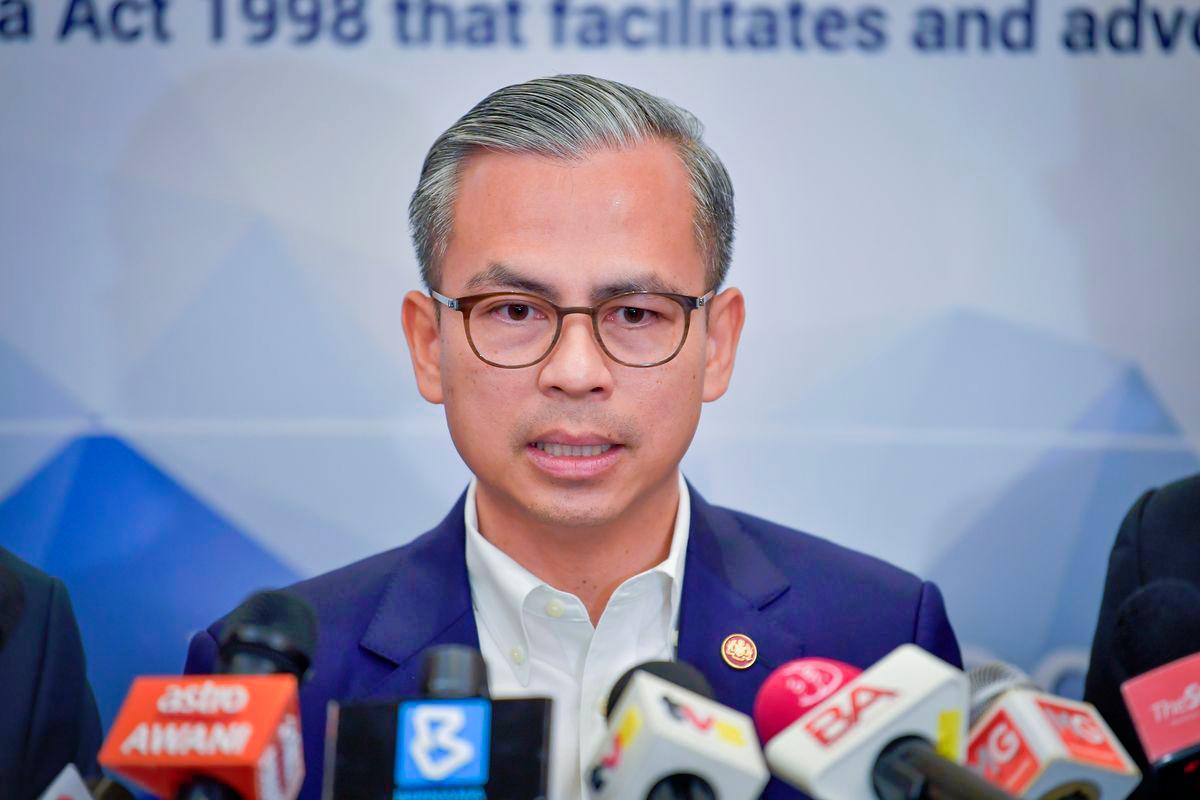PETALING JAYA: Communications Minister Datuk Fahmi Fadzil today launched the Guidelines for Reporting and Sharing of Suicide-Related Content, the first such initiative in the world developed through an industry-led, inclusive and multi-stakeholder approach.
Fahmi said the proactive efforts by the Communications and Multimedia Content Forum (CMCF) in developing these guidelines had brought together the Ministry of Health, media professionals and individuals with lived experiences, before further strengthening them through public consultations.
“In fact, Malaysia has been invited to present this initiative at the International Association for Suicide Prevention (IASP) World Congress 2025 in Vienna (Austria) this month, with CMCF representing our country,“ he said in his speech at the guideline launching ceremony at Menara Star here today.
Also present were CMCF chairman Rafiq Razali, Communications Ministry deputy secretary-general (Telecommunications Infrastructure) Mano Verabathran, Ministry of Health deputy director-general (Public Health) Dr Ismuni Bohari, and Star Media Group (SMG) chairman Tan Sri Wong Foon Meng.
Fahmi said the Communications Ministry, together with the Malaysian Communications and Multimedia Commission (MCMC), will continue to support such efforts to ensure that the content ecosystem in Malaysia remains safe, inclusive and supportive of public wellbeing.
“I would also like to call upon all industry players, whether media practitioners, content creators, influencers or everyday users, to refer to and adopt these guidelines in their daily content creation and sharing,“ he said.
He said reporting about suicide is among the most sensitive and harrowing topics any journalist will face and it is essential to be responsible and discreet, ensuring that they do not divulge too many details and the location of the tragic event.
“This is primarily because of the consideration and compassion we must show to the family of the deceased. There is also the phenomenon of copycat suicides, where others learn about the tragedy and attempt to emulate it. For these two reasons alone, we must never treat suicide reporting and sharing lightly,“ he said.
Meanwhile, during a press conference, Fahmi hailed TikTok for voluntarily becoming a member of the Content Forum.
“Facebook, Instagram and X (are) far from satisfactory, so I will also communicate with them but they must understand that the Content Forum is not government-led, it is industry-led.
“It is actually in their interest that they participate so that they can help to develop certain (guidelines) whether best practices, (or) code of conduct. These I think is in their own interest, they should participate,“ he said.
Meanwhile, Fahmi hopes that the guidelines will be practised by all parties, not just journalists but those who report from the field and even within the entire media organisational structure.
“For us to do this, there needs to be a structural change, particularly in the culture of reporting, the whole organisation needs to understand and we must respect certain principles that are stressed in the guidelines.
“I ask that the Content Forum carry out several matters. Firstly, to involve as many media organisations from the Peninsula, Sabah and Sarawak as possible in workshop sessions so that all parties can understand the gist of the guidelines that have been launched.
“Secondly, we need to involve not just the mainstream media but also social media platforms because platforms like TikTok, Facebook and others, must understand that action needs to be taken on any issue that leads to what we might not call reporting, news reports but is displayed, showcased on their platforms,” he said.
Asked if the existing act is sufficient to regulate social media platforms, he said it was not just a legal issue but the attitude of platform operators who prioritised profit.
“I just returned from a meeting of communication ministers in the Asia Pacific region, (and) we found that generally many countries in this region faced social media-related problems,” he said.









